A Palestinian surgeon’s GoFundMe bid to evacuate his daughter from Gaza — and the digital army that’s mobilized to help
Why It Matters
People in Gaza are facing a catastrophic humanitarian situation — extreme shortages of food, water and medical supplies. To get to safety, hundreds of Palestinians are appealing to donors worldwide through GoFundMe.
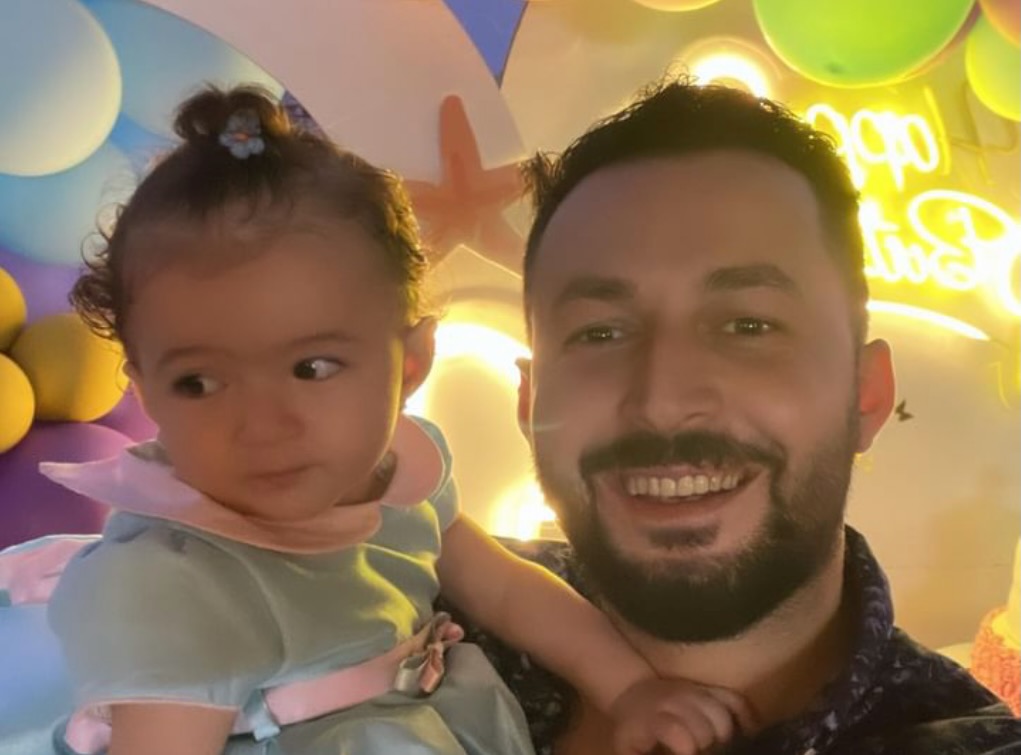
Editor’s note: The names of Dr. Abu Warda’s family have been changed for their privacy and protection. This independent journalism is supported by Makeway and Waterloo Region Community Foundation. Read our editorial ethics and standards here.
In the largest hospital in Gaza, on a break from tending to the scores of injured people on gurneys, surgeon Dr. Abedelwahab Abu Warda scrolled Instagram for social media influencers.
It was January — one month after 31 of his relatives were killed by an Israeli airstrike on his home — and the 30-year-old Palestinian surgeon was feeling increasingly desperate.
Sheltering with him at Al-Shifa Hospital was his only child, 18-month-old Nasreen, his wife, Mariam, and 22 other relatives. While he performed amputations and abdominal surgeries, they slept in the crowded corridors.
Food was scarce. They ate one meal each day — rice when they could get it or, increasingly, ground animal feed.
Like many others, Dr. Abu Warda was frantic with the need to find a way out for his family. Social media influencers seemed to be his last hope. Since the war began, only foreign nationals could reliably leave the Palestinian territory hemmed in by Israel, Egypt and the Mediterranean Sea.
He hadn’t been paid since the war began and inflated food prices had depleted his savings. He didn’t have the money to pay a broker the wartime $5,000 per-person fee to get his relatives on the list to get out of Gaza.
He’d seen others fundraising on GoFundMe, but he was reluctant. In Palestinian culture, there’s pride in self-sufficiency. Ultimately, the safety of his daughter and family won out.
She screams when she hears bombs dropped nearby, he said, of Nasreen.
On Instagram, he wrote to content creators who appeared sympathetic to the Palestinian cause — an Arab-American food YouTuber, a fashion influencer, and a pro-Palestine queer group in Florida, among them. Few responded, but one suggested he contact Sarah Potter, an Arizona-based mental health influencer and the co-founder of a group called Project Watermelon that was helping Palestinians evacuate.
“I’m sending you this message because I really need your help,” Dr. Abu Warda wrote to Potter on Feb. 7.
“There are no longer any options left for me to support my family here or keep them safe.”
Within four hours, the surgeon received a response, offering a flicker of hope. Establishing his GoFundMe was the first step, but would it work?
Over the past two months, hundreds of Palestinians have created similar fundraisers aided by friends and relatives in the diaspora. These crowdfunding pages have then been vetted, curated and amplified by digitally savvy volunteer groups to hundreds of thousands of others globally.
Witnessing children dying of starvation and homes turned to rubble, thousands of donors have chipped in, raising millions, delivering aid to people in Gaza faster, in some cases, than humanitarian agencies in the region — and helping several families evacuate.
The social media amplification of these crowdfunding campaigns is impressive and better organized than anything he’s seen before, said Gregory Witkowski, affiliate faculty at the New York-based National Center for Disaster Preparedness.
Still, while Witkowski said he’d never discourage a donor from giving, he urges caution, noting there are challenges to using GoFundMe to alleviate suffering during a disaster.
Before Oct. 7
In the Gaza Strip, where two-thirds of the country’s 2.3 million people relied on food aid before the war, Dr. Abu Warda’s family had been more comfortable than most.
As a boy, he dreamed of becoming a surgeon, and in 2017 he graduated from medical school in Egypt, subsequently working at Al-Shifa Hospital in Gaza City. In 2019, with his father’s help, he purchased a six-storey home with a rooftop terrace overlooking the city. It had all the comforts, he said, including a clinic on the second floor, where he saw patients.
In 2021, he and Mariam were married, surrounded by dancing friends and relatives. About a year later, Nasreen was born. As the youngest of many cousins, she was spoiled by her aunts and uncles.
Her curly hair bunched in a palm tree atop her head, Nasreen grew to cherish her Mickey Mouse plush toy. In a photo from her first birthday party, she squirms while her dad smiles proudly at the camera, surrounded by green, pink and blue balloons.
Everything changed on Oct. 7, 2023.
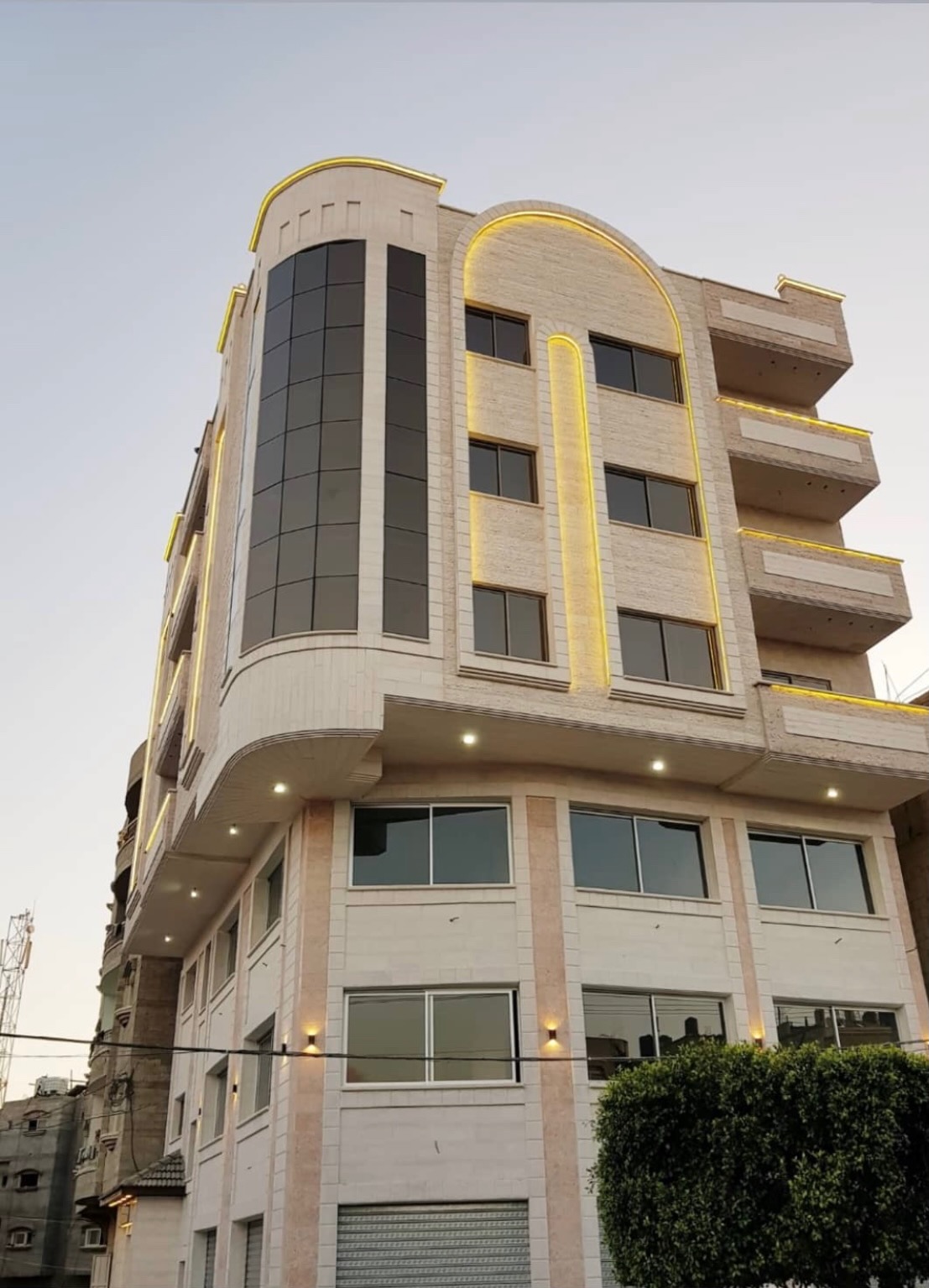
At dawn, a barrage of Hamas rockets provided cover for militants to storm past barriers separating Israel and Gaza. In the raid, Hamas fighters killed about 1,200 people, among them at least 33 children, and took an additional 250 hostages.
That evening, at the Kirya military base in Tel Aviv, Israeli Prime Minister Benjamin Netanyahu declared his intention to destroy Hamas’ capabilities and called on people in Gaza to flee.
“All of the places which Hamas is deployed, hiding and operating in, that wicked city, we will turn them into rubble,” he said.
Dr. Abu Warda was filled with dread.
The decision to stay
Six days later, Israeli Defence Force soldiers dropped leaflets from planes over Gaza City, telling its 600,000 residents they had 24 hours to evacuate south.
Like thousands of others, the Abu Wardas stayed. The surgeon wanted to keep working at the hospital to help the wounded — and his family refused to leave him behind.
As bombs rained down over Gaza City last fall, 48 members of the surgeon’s extended family arrived at his house for shelter. Among them was Ibrahim, one of the surgeon’s cousins. The two were close. Before the war, they played cards and ate shawarma at a local cafe every Thursday.
Space in the house was tight. Kids sardined into beds, and parents slept on couches, uncomfortable but together. On the nights when the bombing was heavy, they slept on the floor, waiting for daybreak.
On Nov. 15, the IDF stormed Al-Shifa Hospital. In a public statement, Israeli officials said they uncovered evidence of Hamas’ use of the facility as a command centre for military activities. An investigation by The Washington Post found that evidence inconclusive.
The multi-day raid, however, forced many who had been sheltering in the hospital onto the street and contributed to the deaths of 40 patients due to a lack of electricity, according to the Gaza Health Ministry. In the following days, Dr. Abu Warda took shifts at another local hospital until it was safe to return.
Then, on Dec. 9, 2023, a bomb struck.
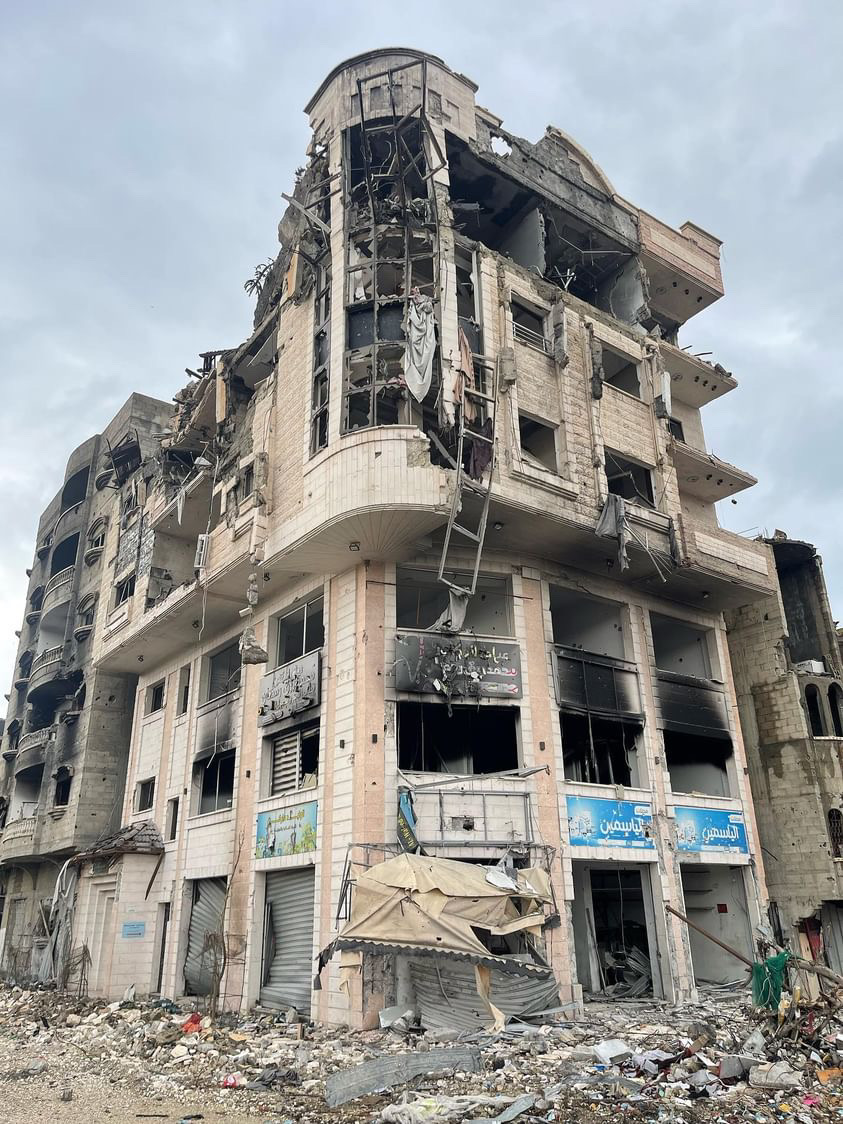
He had been watching the news that night when the bomb crashed into his home, shattering glass, toppling walls, and killing 31 of his relatives aged three to 60. Ibrahim, 27, was among the dead.
Dr. Abu Warda’s mother, Aisha, was hit in the chest with shrapnel. The surgeon and Mariam also had cuts from the blast. Nasreen mercifully escaped unscathed, he said. The strike singed walls, threw concrete across rooms, and exposed wires, destroying all his family’s possessions.
“In a moment, I lost everything.”
Satellite footage shows the war has reduced much of the Palestinian territory to rubble. In a December analysis, The Wall Street Journal found Israel’s military campaign has damaged or destroyed 70 per cent of Gaza’s homes.
In the face of such evidence, Balakrishnan Rajagopal, the U.N. special rapporteur on the right to adequate housing, accused Israel of “domicide” — the widespread and systematic destruction of homes.
The Abu Warda’s staggering loss of kin is also not isolated. Just one month into the war, 312 families had lost ten or more relatives, according to the Palestinian Health Ministry. Since the war began, more than 31,200 Palestinians have been killed.
An effort to escape
After the blast, the Abu Warda family sought shelter at the hospital. The November IDF raid had destroyed the MRI room. He and his colleagues made do as best they could. But the lack of food and water weighed heavily.
Days after Netanyahu’s Oct. 7 address, Israeli Defence Minister Yoav Gallant ordered a “complete siege” of Gaza, including a halt to the supply of food, water, electricity and fuel.
In the months following, humanitarian agencies faced delays and blockages of their supply trucks at the borders, leading Human Rights Watch to accuse the Israeli government of deliberately starving Palestinians.
Aunts and uncles played games with Nasreen in the hospital hallways, but no toys were left, and it was increasingly difficult to find her milk, Dr. Abu Warda said.
Other young families were also suffering. Aid workers in northern Gaza found that about one in six children under the age of two in December and January was “acutely malnourished.”
In their January decision, the International Court of Justice cited the crisis levels of hunger as evidence it was plausible Israel was engaging in Acts of Genocide. The court ordered provisional measures, including free-flowing access to food aid.
But the situation did not improve. In February, virtually no food, water or other supplies reached people in northern Gaza.
For the first time, Dr. Abu Warda worried his family might starve to death.
He waited anxiously to hear back from Potter, the social media influencer in Arizona. They were verifying Dr. Abu Warda’s story, as they and Project Watermelon volunteers had done with others, reviewing the surgeon’s identification documents, examining photos, and asking a series of questions that would help to surface fraud.
Meanwhile, Potter worked to find someone to sponsor the surgeon’s fundraiser. GoFundMe doesn’t allow people in Gaza to create their own campaign, and the Palestinian family had trouble finding someone to help. Potter connected with Nicole L. Hawkins, a longtime activist they had met while supporting Palestinians.
Living in Chattanooga, Tenn., where pro-Palestine activism was muted, Hawkins had been looking for another way to help. Deeply moved by the surgeon’s story, she agreed to launch the GoFundMe as his sponsor.

Throughout February, Hawkins posted the surgeon’s story widely on social media. She wrote to influencers, asking them to do the same. Through direct messages, likes, and comments on others’ posts, word spreads.
Many Gaza fundraising efforts have received additional Instagram amplification by Project Watermelon and two other groups supporting Palestinians — Operation Olive Branch and Let’s Talk Palestine. Together, their pages have a collective following of nearly 900,000 on Instagram.
Throughout February, the surgeon checked his GoFundMe’s progress three or four times a day. The tally was slowly ticking up, but he felt impatient. The conditions at the hospital were deteriorating further.
By the end of February, hundreds of donors had chipped in a collective $17,000, but Dr. Abu Warda was still $8,000 short of trying to send the first group of family members across the border to Egypt. The plan was for his sister and family to go first. She would then set things up to welcome Mariam, Nasreen and the others.
While he waited, other campaigns offered some hope.
Since their efforts began, Project Watermelon and other groups have supported members of at least six families to evacuate Gaza to Egypt.
Are there risks?
While two disaster philanthropy experts are cautious about throwing cold water on the fundraising efforts of Palestinians facing an impossible scenario, they urge donor caution.
While humanitarian charities must file tax returns or publish annual reports telling donors how they’ve used their money, crowdfunding beneficiaries do not. The gifts are analogous to giving to someone on the street, said Witkowski. It’s not a wrong way to give, but he adds that donors must be made aware of the difference.
There’s also the risk of exploitation of donors or recipients, he said. Humanitarian agencies intermediate between the giver and the receiver. With GoFundMe campaigns amplified on social media, he said there’s a greater risk a donor might ask too much of a recipient or vice versa.
Inequity arising from GoFundMe campaigns is another concern, said University of Notre Dame professor Alfonso Pedraza-Martinez. Whereas agencies support everyone, GoFundMe helps just a few of the luckiest, he said.
A 2023 study of crowdfunding campaigns after a Colorado wildfire found beneficiaries with incomes above $150,000 received 28 per cent more than peers with incomes below $75,000. Witkowski said this pattern is likely to be similar in Gaza.
Even if fundraisers meet their goal, there’s no guarantee they’ll be able to evacuate — the final decision rests with Egyptian border officials, said Pedraza-Martinez.
Hawkins agreed with some of these concerns. She also believes GoFundMe is imperfect — that its fees, for instance, are too high, eating into the total tally Dr. Abu Warda will be able to collect. (On every gift, the fundraising company charges about a three per cent transaction fee — or $1.75 on a $50 donation.)
Still, with aid agencies stopped with full trucks at the Egyptian border and the United Nations Relief and Works Agency for Palestine Refugees (UNRWA) at reduced capacity, GoFundMe is a lifesaving tool, said Hawkins.
“Today, whether you like it or not, GoFundMe is the last hope that some Gazans have to survive this war,” she added.
An influencer drives donations
In early March, Dr. Abu Warda joined an Instagram Live from Gaza hosted by Hawkins and Daniel Maté, a musical composer with 90,000 followers.
A flurry of heart emojis streamed across the screen when the surgeon spoke. About 450 people from around the world were watching.
“I’m just so happy to see you,” said Hawkins, tearing up.
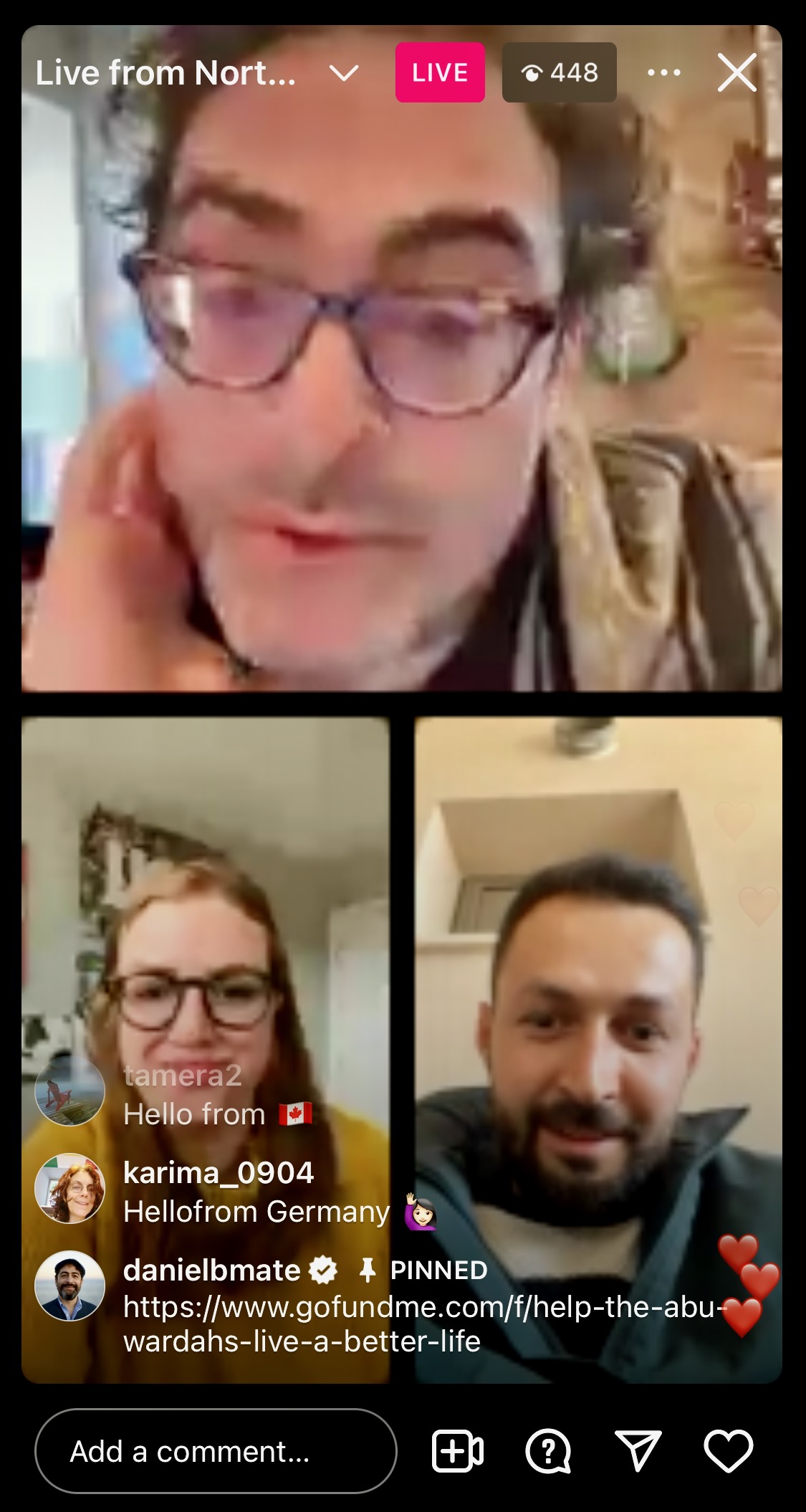
Less than a week prior, at least 112 people were killed trying to get food from an aid truck in Gaza City in what many Palestinians now call the “flour massacre.”
On the day of the Instagram Live, Dr. Abu Warda said he performed six abdominal surgeries, removing one patient’s spleen, excising a portion of another’s stomach, and repairing a third’s damaged liver. In the absence of available beds, some patients lay on blankets on the floor of the hospital; their family members huddled around, offering comfort.
Donations picked up as the surgeon described his work. Within hours, there was $27,000 – enough for his sister and her family to prepare for the journey toward the border.
Dr. Abu Warda felt a moment of relief.
The money will go first to Hawkins’ bank account in the United States and then to Gaza through Western Union, a bank transfer, or a digital financial platform.
But the feeling didn’t last long. To evacuate Nasreen, Mariam and the others, to survive in Gaza while he continues to treat patients, and to, one day, bring his wife and daughter back to the territory where his family has lived for years — all of that will take much more than $27,000.
A father’s effort
Asked about his hopes for his daughter’s life, Dr. Abu Warda said all he can think of is the present — of the need to get her away from the misery and terror of war.
Since Oct. 7, Nasreen has learned to walk and to say mama and papa.
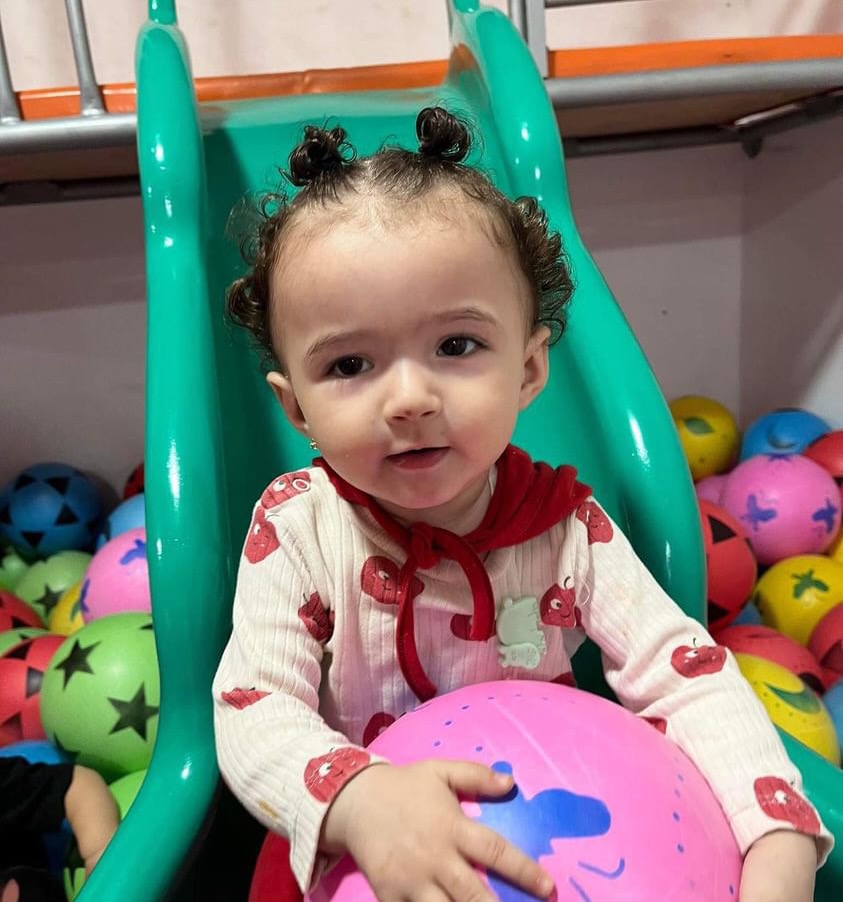
In the last two weeks, more than a dozen children in northern Gaza have died from hunger and malnutrition. The speed of the drop in nutrition in Gaza since the war began is the fastest decline in a population ever recorded, according to the United Nations.
However, Dr. Abu Warda doesn’t need statistics to know the danger his daughter is facing.
“I simply don’t want to lose her here,” he said. “You must help me with that. I do not want to lose anyone else.”
-With files from Rahaf Farawi
